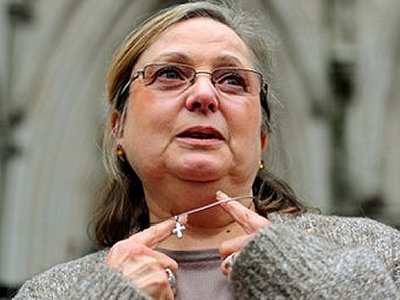
DILEMMAS IN THE WORKPLACE
The Church should help people to navigate rapidly changing workplaces with confidence in their personal Christian testimony, but its attention is often elsewhere
For celebrities, no publicity is worse than bad publicity. Perhaps the Church in Britain can take a crumb of comfort from this aphorism, for religious faith remains a relevant part of public life, even if some of the debate is hostile.
One trend impacts greatly on faith today: the shift from a modern to a post-modern view of the world. A component of this is the declining trust placed in institutions and public figures. The respect afforded professionals has been damaged for good reasons and for bad.
Greater transparency and service user power have shed light on shoddy practices but public suspicion and ready access to sources of information lead citizens to assume vested professional interests hinder public understanding. As a result, there is less faith in institutions than before. The Church has become part of this trend, though not the exclusive owner of it.
If this is a cause for concern, the Church may be a beneficiary of a different trend, from the empirical to the experiential. Scientific methodology is built on the painstaking accumulation of evidence forged in the crucible of cause and effect. This structure has allowed for incalculable gains but has also been used by some to excoriate religious faith, which by definition is not provable in the same way. The growing preference today for personal knowledge over expert evidence may be frustrating at times, but it also confers respect on individual experience, which lies at the heart of religious life.
There are, in other words, fresh openings for evangelism in our generation; the question is: how well are we exploiting them? The origin of Christian faith lies in the personal testimony of Mary Magdalene that she had seen the Lord, that he was alive. She told her friends, and there has been an unbroken line of individual witness ever since, where people share what they have experienced of God. Yet there is a sense that people tread warily round the injunction to share faith with others today.
Jesus said that our light should shine before others so that they may glorify God, but if we are reluctant to put our faith on the record in some way or other, the chances are that other people will give us sole credit for any kindness we exhibit. It may be that Christians are less sure of their footing in sharing faith in public than before. A few unusual cases where Christian employees have been disciplined, or worse, for talking about their faith or offering to pray for a colleague, may have had a chilling effect on evangelism.
Though the workplace is only one context in which Christians mingle with others, it remains an important place in which to demonstrate discipleship. Churches are often preoccupied with parochial agendas that revolve round the ministry of their leaders, yet there are large and often untapped reserves of faith among those who work elsewhere during the week; people who want to learn how to be better disciples where they earn a living each day rather than where they worship each week. The Church should help people to interpret the new and occasionally bewildering contexts in which they work so they can express faithful discipleship; at times it feels like our attention is elsewhere.
POPULAR ARTICLES

Obama's Covert Wars
The use of drones is going to change warfare out of all recognition in the next decades.

Through A Glass Starkly
Images of traumatic incidents caught on mobile phone can be put to remarkable effect.

What Are British Values?
Is there a British identity and if so, what has shaped the values and institutions that form it?


